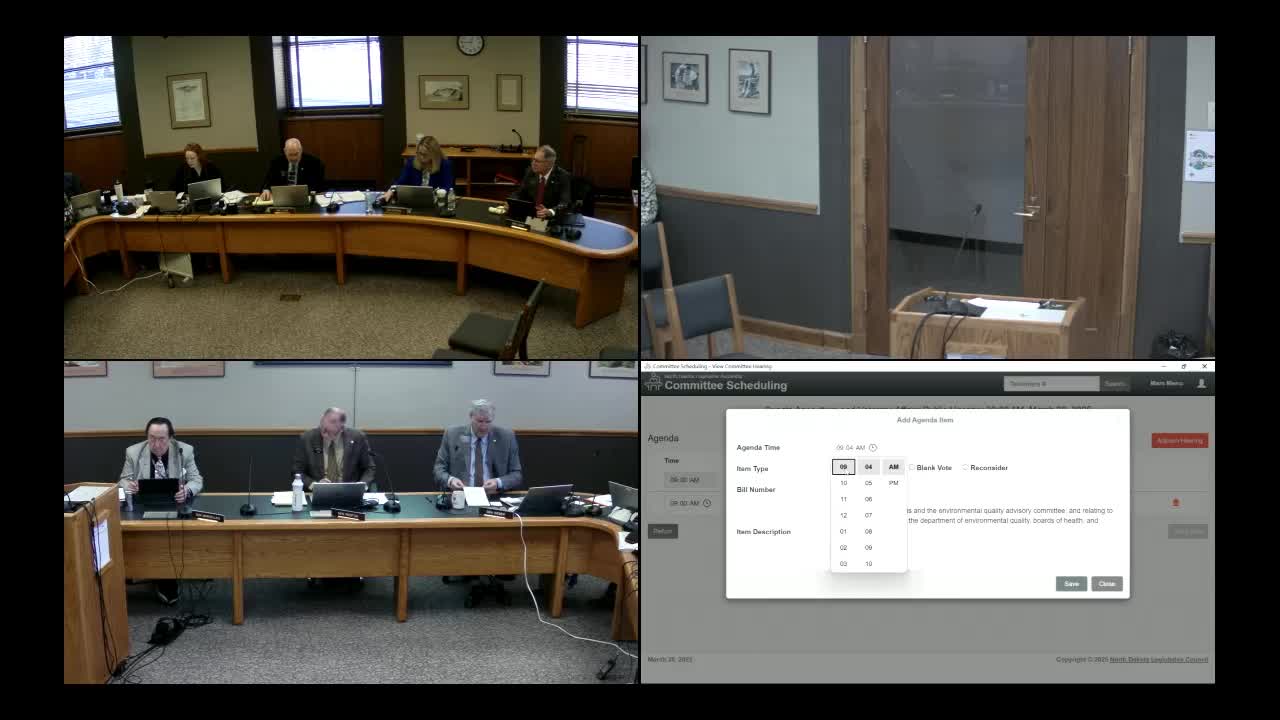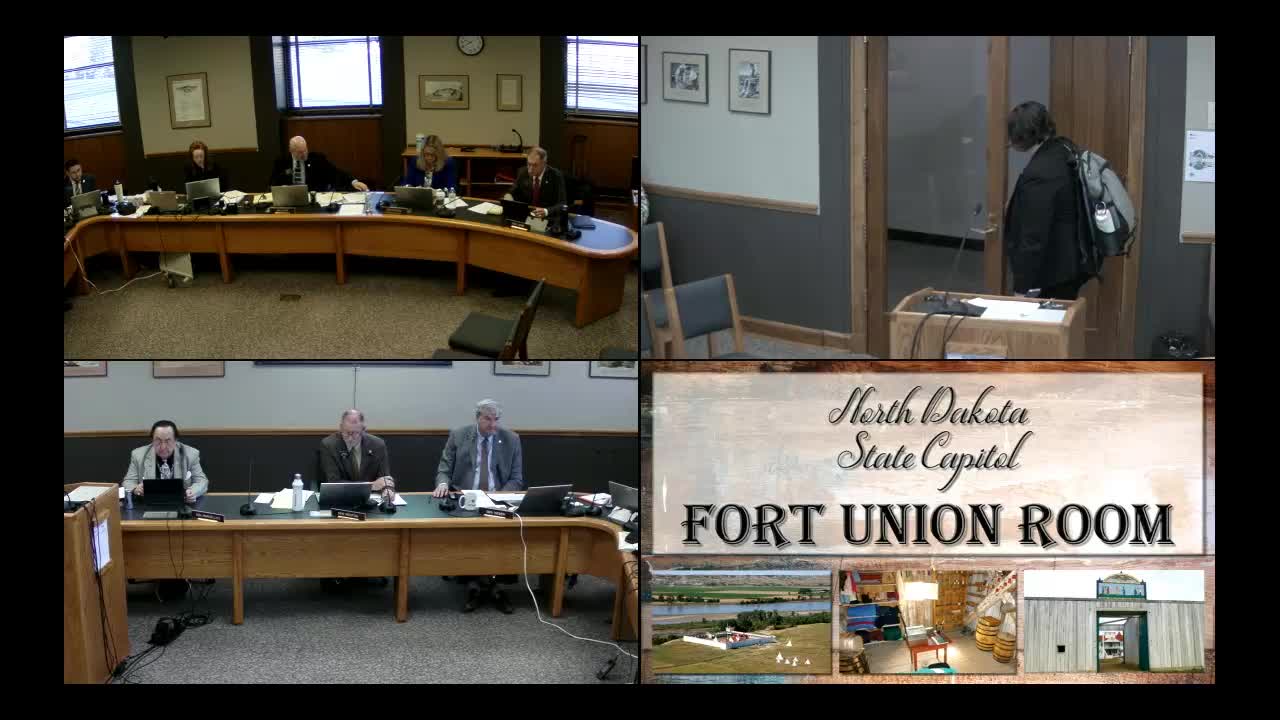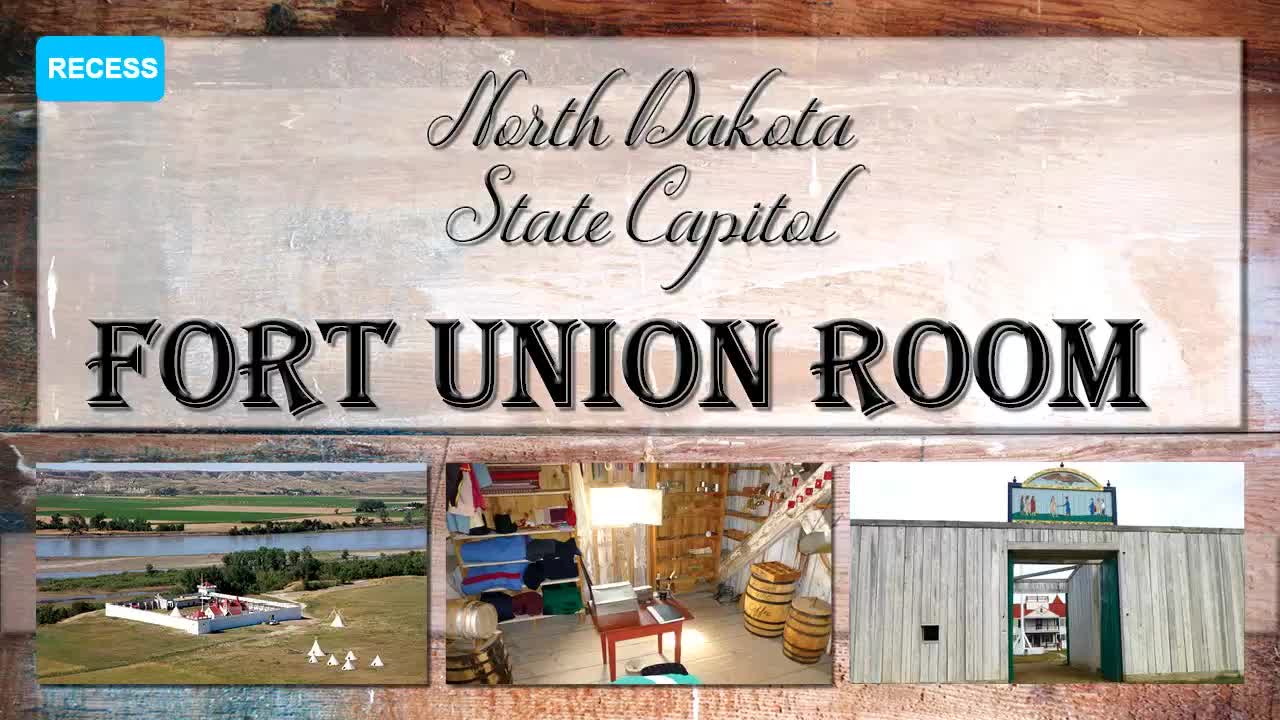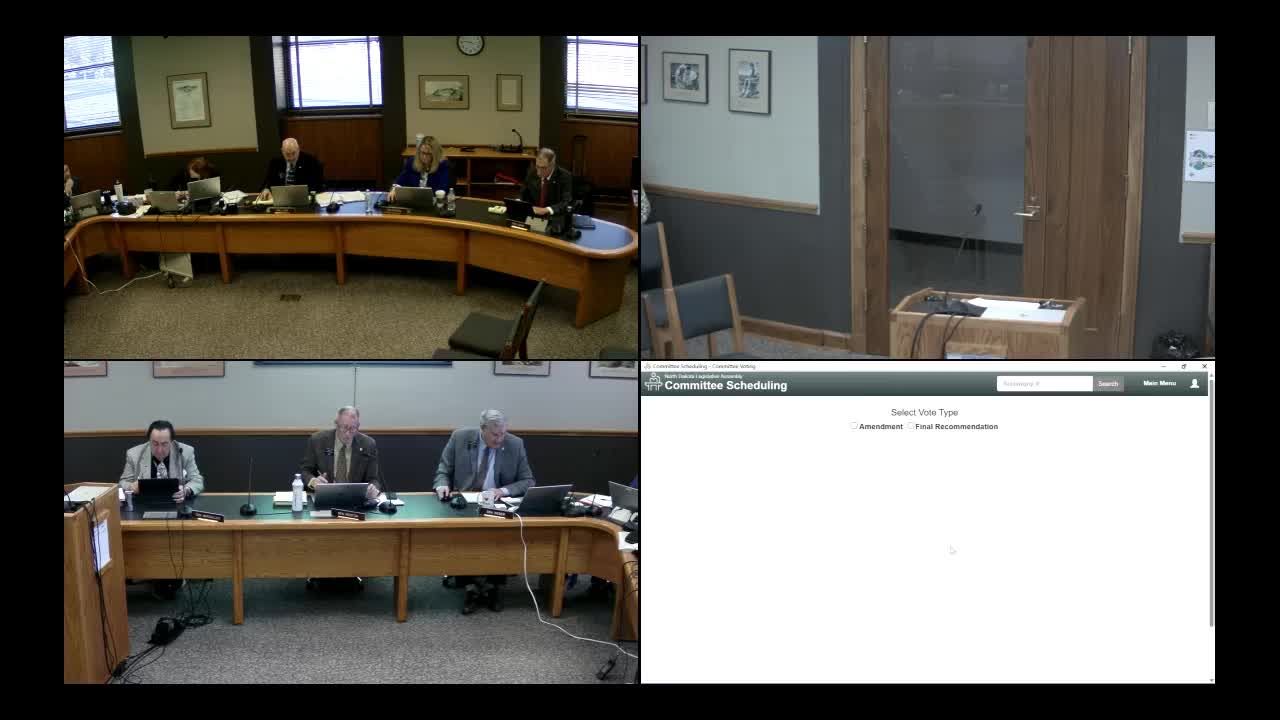Article not found
This article is no longer available. But don't worry—we've gathered other articles that discuss the same topic.

Committee removes advisory-committee language from septic-systems bill, moves oversight toward DEQ

Committee debates tribal tourism grant amounts, rescinds amendment and decides to gather more information

Committee reviews conferee report on military-compatibility duties; transfers oversight to agriculture commissioner in draft

